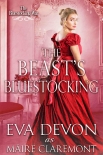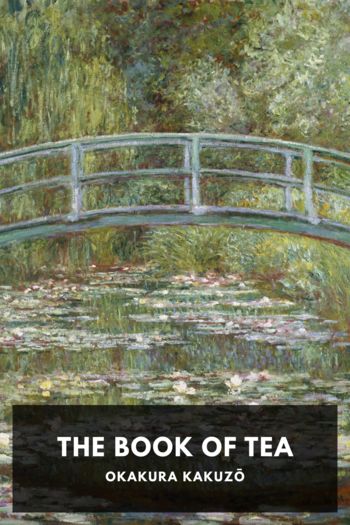Shirley Charlotte Brontë (free ebook reader for pc .txt) 📖

- Author: Charlotte Brontë
Book online «Shirley Charlotte Brontë (free ebook reader for pc .txt) 📖». Author Charlotte Brontë
Helstone smiled sardonically; Malone laughed a horselaugh. He then replaced his arms, took his hat and cudgel, and saying that “he never felt more in tune for a shindy in his life, and that he wished a score of greasy cloth-dressers might beat up Moore’s quarters that night,” he made his exit, clearing the stairs at a stride or two, and making the house shake with the bang of the front-door behind him.
II The WagonsThe evening was pitch dark: star and moon were quenched in gray rain-clouds—gray they would have been by day; by night they looked sable. Malone was not a man given to close observation of nature; her changes passed, for the most part, unnoticed by him. He could walk miles on the most varying April day and never see the beautiful dallying of earth and heaven—never mark when a sunbeam kissed the hilltops, making them smile clear in green light, or when a shower wept over them, hiding their crests with the low-hanging, dishevelled tresses of a cloud. He did not, therefore, care to contrast the sky as it now appeared—a muffled, streaming vault, all black, save where, towards the east, the furnaces of Stilbro’ ironworks threw a tremulous lurid shimmer on the horizon—with the same sky on an unclouded frosty night. He did not trouble himself to ask where the constellations and the planets were gone, or to regret the “black-blue” serenity of the air-ocean which those white islets stud, and which another ocean, of heavier and denser element, now rolled below and concealed. He just doggedly pursued his way, leaning a little forward as he walked, and wearing his hat on the back of his head, as his Irish manner was. “Tramp, tramp,” he went along the causeway, where the road boasted the privilege of such an accommodation; “splash, splash,” through the mire-filled cart ruts, where the flags were exchanged for soft mud. He looked but for certain landmarks—the spire of Briarfield Church; farther on, the lights of Redhouse. This was an inn; and when he reached it, the glow of a fire through a half-curtained window, a vision of glasses on a round table, and of revellers on an oaken settle, had nearly drawn aside the curate from his course. He thought longingly of a tumbler of whisky-and-water. In a strange place he would instantly have realized the dream; but the company assembled in that kitchen were Mr. Helstone’s own parishioners; they all knew him. He sighed, and passed on.
The highroad was now to be quitted, as the remaining distance to Hollow’s Mill might be considerably reduced by a shortcut across fields. These fields were level and monotonous. Malone took a direct course through them, jumping hedge and wall. He passed but one building here, and that seemed large and hall-like, though irregular. You could see a high gable, then a long front, then a low gable, then a thick, lofty stack of chimneys. There were some trees behind it. It was dark; not a candle shone from any window. It was absolutely still; the rain running from the eaves, and the rather wild but very low whistle of the wind round the chimneys and through the boughs were the sole sounds in its neighbourhood.
This building passed, the fields, hitherto flat, declined in a rapid descent. Evidently a vale lay below, through which you could hear the water run. One light glimmered in the depth. For that beacon Malone steered.
He came to a little white house—you could see it was white even through this dense darkness—and knocked at the door. A fresh-faced servant opened it. By the candle she held was revealed a narrow passage, terminating in a narrow stair. Two doors covered with crimson baize, a strip of crimson carpet down the steps, contrasted with light-coloured walls and white floor, made the little interior look clean and fresh.
“Mr. Moore is at home, I suppose?”
“Yes, sir, but he is not in.”
“Not in! Where is he then?”
“At the mill—in the countinghouse.”
Here one of the crimson doors opened.
“Are the wagons come, Sarah?” asked a female voice, and a female head at the same time was apparent. It might not be the head of a goddess—indeed a screw of curl-paper on each side the temples quite forbade that supposition—but neither was it the head of a Gorgon; yet Malone seemed to take it in the latter light. Big as he was, he shrank bashfully back into the rain at the view thereof, and saying, “I’ll go to him,” hurried in seeming trepidation down a short lane, across an obscure yard, towards a huge black mill.
The work-hours were over; the “hands” were gone. The machinery was at rest, the mill shut up. Malone walked round it. Somewhere in its great sooty flank he found another chink of light; he knocked at another door, using for the purpose the thick end of his shillelah, with which he beat a rousing tattoo. A key turned; the door unclosed.
“Is it Joe Scott? What news of the wagons, Joe?”
“No; it’s myself. Mr. Helstone would send me.”
“Oh! Mr. Malone.” The voice in uttering this name had the slightest possible cadence of disappointment. After a moment’s pause it continued, politely but a little formally—
“I beg you will come in, Mr. Malone. I regret extremely Mr. Helstone should have thought it necessary to trouble you so far. There was no necessity—I told him so—and on such a night; but walk forwards.”
Through a dark apartment, of aspect undistinguishable, Malone followed the speaker into a light and bright room within—very light and bright indeed it seemed to eyes which, for the last hour, had been striving to penetrate the double darkness of night and fog; but except for its excellent fire, and for a lamp of elegant design and vivid lustre burning on a table, it was a very plain place. The boarded floor was carpetless; the three or four stiff-backed, green-painted chairs seemed once





Comments (0)